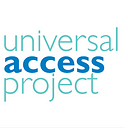A Bold Agenda: Realizing the Health & Rights of 4 Billion People
By Seema Jalan
A new report released today outlines an ambitious path forward to realize the sexual and reproductive health of every person around the world — offering welcome guidance at a critical time for these issues.
The statistics are sobering: More than 200 million women around the world want to avoid or delay pregnancy, but are not using a modern form of birth control. At the same time, each year almost 2 million people will become infected with HIV, 25 million women will suffer unsafe abortions, and more than 265,000 women will die from cervical cancer. Nearly every person of reproductive age globally — more than 4 billion people — will lack at least one essential sexual or reproductive health service over the course of their reproductive years. All of this as the world’s largest funder of international reproductive health and family planning — the U.S. government — rolls back its commitments.
These gaps in access to sexual and reproductive health and rights are widespread and have devastating consequences for people everywhere — especially for women and children who live in poverty. If you are poor, then you are also unlikely to have access to sexual and reproductive health and, in turn, unlikely to have access to education or good jobs. It should be no surprise then that when people have quality sexual and reproductive health, it fuels progress on all our global goals — ending global poverty, achieving sustainability and promoting whole economies
And today, we have new reason for hope: The Guttmacher-Lancet Commission on Sexual and Reproductive Health and Rights — a collaboration of leading experts from around the world from the health, development, and human rights arenas — unveiled a new, bold agenda to bridge these gaps, calling for global commitments to an ambitious roadmap that culminates with the right of all people to make decisions about their bodies and their futures.
Emphasized in the commission’s report is the intersection of sexual and reproductive health with sexual and reproductive rights: Achieving the first (health) relies on realizing the second (rights). It is in this framework that the commission outlines a new, holistic definition of sexual and reproductive health and rights that now goes beyond just the absence of ill-health but rather celebrates the goal that each of us should be able to enjoy overall well-being related to our sexuality and reproduction.
The commission’s path forward includes aspects that are commonly recognized in global programs and services for sexual and reproductive health — such as contraceptives, maternal health, newborn care, and prevention and treatment of HIV/AIDS — as well as other critical, but sometimes less common, interventions that are necessary for a comprehensive approach: care for other sexually transmitted infections aside from HIV; comprehensive sexuality education; safe abortion care; addressing gender-based violence; addressing infertility or cervical cancer; and counseling and care for overall sexual health and bodily autonomy. This framework brings together all of what’s needed to meet the full range of an individual’s needs.
“For too long the world has accepted these stark realities as inevitable. Our report shows how they can be overcome, laying out a roadmap that countries can use to put essential services and interventions in place,” said Ann M. Starrs, Commission Co-Chair and President and CEO of the Guttmacher Institute. “We have the means and the knowledge to achieve universal sexual and reproductive health and rights. Meaningful progress is possible, it is affordable, and it is vital.”
What we need now is political will and, ultimately, action. The commission outlines high-priority, evidence-based actions to help local and global governments, donors, and non-governmental organizations advance a comprehensive agenda centered in our human right to sexual and reproductive health. The time is now: We have the opportunity to change the course of more than 4 billion lives.
Learn more about the Universal Access Project and get involved at www.universalaccessproject.org.
